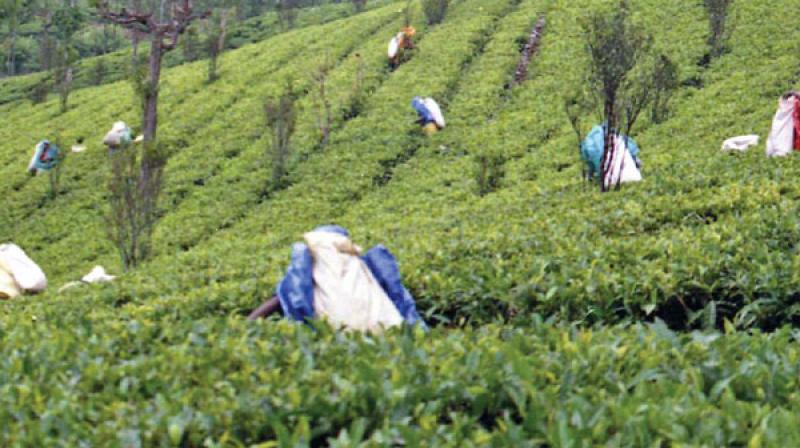As crisis grips plantation, planters seek minimum support price for coffee, tea
The plantation sector has been confronted with low prices, rising input costs and oversupply of the commodities.

CHENNAI: As a plethora of issues plague them, the beleaguered planters have urged the Centre to bring commodities such as tea, coffee and rubber under the ambit of minimum support price to bail them out of the prevailing crisis.
The plantation sector has been confronted with low prices, rising input costs and oversupply of the commodities.
The prices of coffee, tea and rubber have hardly risen over the past couple of decades, while the costs for producers have increased manifold during the same period. Also, the growth in MSPs declared by the Centre for all the 22 crops has been higher than that of inflation during this period, except for tea, rubber and coffee. Tea prices have risen by only 2.3 times during the period, while that of coffee has moved up by 1.9 times and rubber 2.5 times.
Similarly, wages for workers increased during this period. For instance, wages in the tea sector grew by 9.7 times, while that in the rubber sector has grown by 8.2 times. Karnataka, Kerala and Tamil Nadu are the major producers and these States account for 67 per cent of the growers and 55 per cent of the workers engaged in plantation activities all over the country. About 12.60 lakh growers, mainly small and marginal are cultivating plantation crops on 11.57 lakh hectares providing round the year employment to about 13.47 lakh workers.
In TN, which is mainly Arabica coffee producing region, the post monsoon production estimate of 2018-19 was placed at 17,765 MT, showing a decline of -1,535 MT (-7.95%) over the post blossom estimate (19,300 MT) of 2018-19.
The major factors responsible for reduction in post monsoon production estimates of 2018-19 in Karnataka and Kerala are that though the initial crop set was good with record post blossom stage estimate of over 3,80,000 MT, but from early July, 2018 onwards, continuous heavy rainfall with severe intensity has been witnessed especially in coffee areas of Karnata-ka and Kerala.
Before the incessant rains impacted the crop in August this year, the Coffee Board had pegged the post-blossom estimates for 2019-20 at 3.55 lakh tonnes. The crop for 2018-19 year ending September is marginally higher at 3.19 lakh tonnes. Similarly, rubber production, which stood at 6.42 lakh tonnes in 2018-19, is seen higher by 15.7 per cent at 7.5 lakh tonnes during 2019-20.

